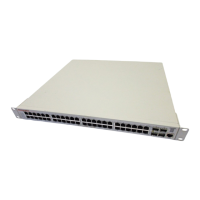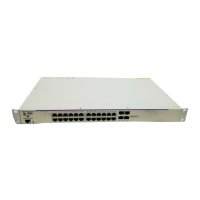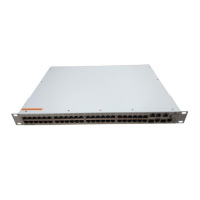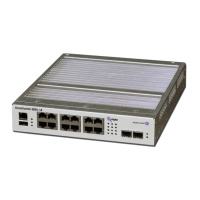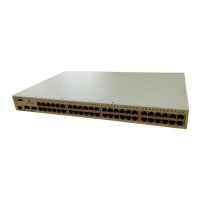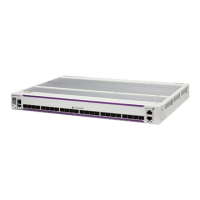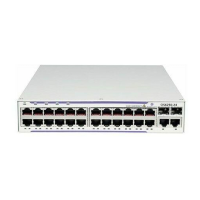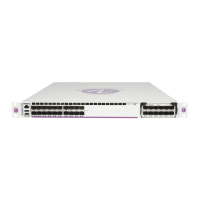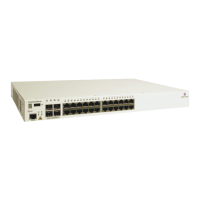QoS Defaults Configuring QoS
page 30-12 OmniSwitch 6800/6850/9000 Network Configuration Guide March 2008
Policy Action Defaults
The following are defaults for the policy action command:
Note that in the current software release, the deny and drop options produce the same effect that is, the
traffic is silently dropped.
Note. There are no defaults for the policy condition command.
Default (Built-in) Policies
The switch includes some built-in policies, or default policies, for particular traffic types or situations
where traffic does not match any policies. In all cases, the switch accepts the traffic and places it into
default queues.
• Other traffic—Any traffic that does not match a policy is accepted or denied based on the global dispo-
sition setting on the switch. The global disposition is by default accept. Use the qos default bridged
disposition, qos default routed disposition, and qos default multicast disposition commands to
change the disposition as described in “Creating Policy Conditions” on page 30-33 and “Setting the
Global Default Dispositions” on page 30-14.
• The switch network group—The switch has a default network group, called switch, that includes all IP
addresses configured for the switch itself. This default network group may be used in policies. See
“Creating Network Groups” on page 30-43 for more information about network groups.
• Policy Port Groups—The switch has built-in policy port groups for each slot. The groups are called
Slot01, Slot02, etc. Use the show policy port group command to view the built-in groups.
Whether to send a trap for the
rule.
trap enabled (trap sent only on port
disable action or UserPort shut-
down operation).
Description Keyword Default
Whether the flow matching the
rule should be accepted or
denied
disposition accept
Description Keyword Default

